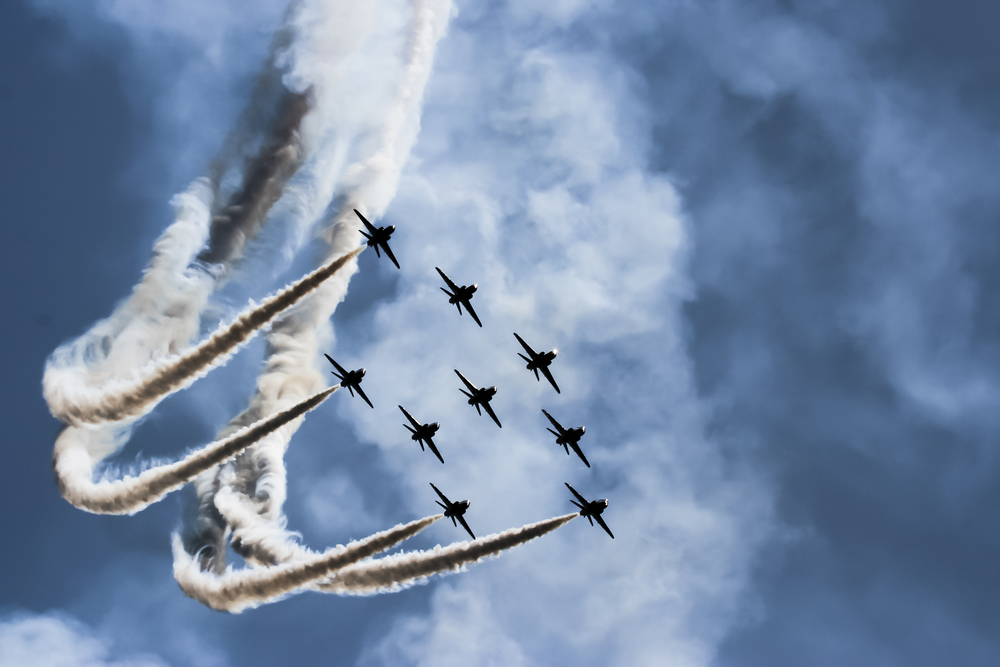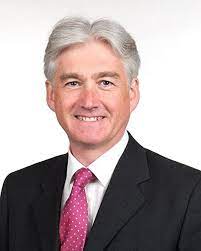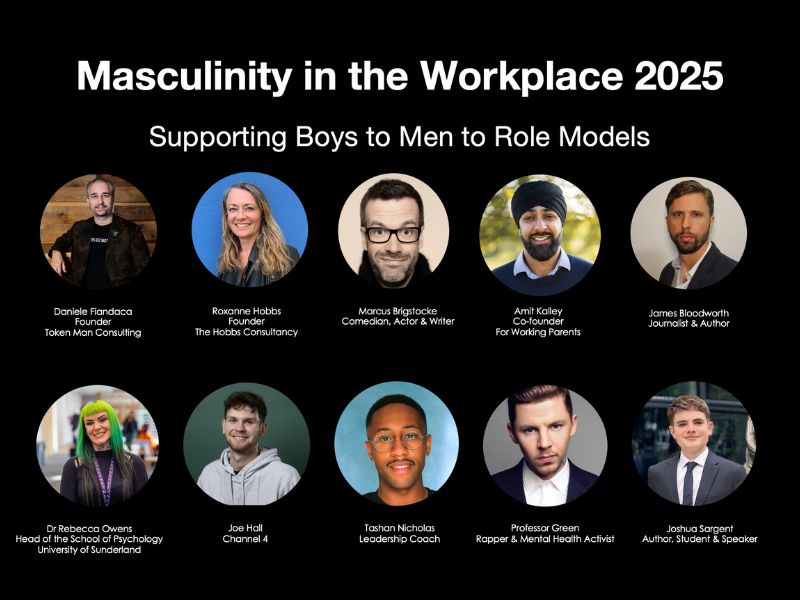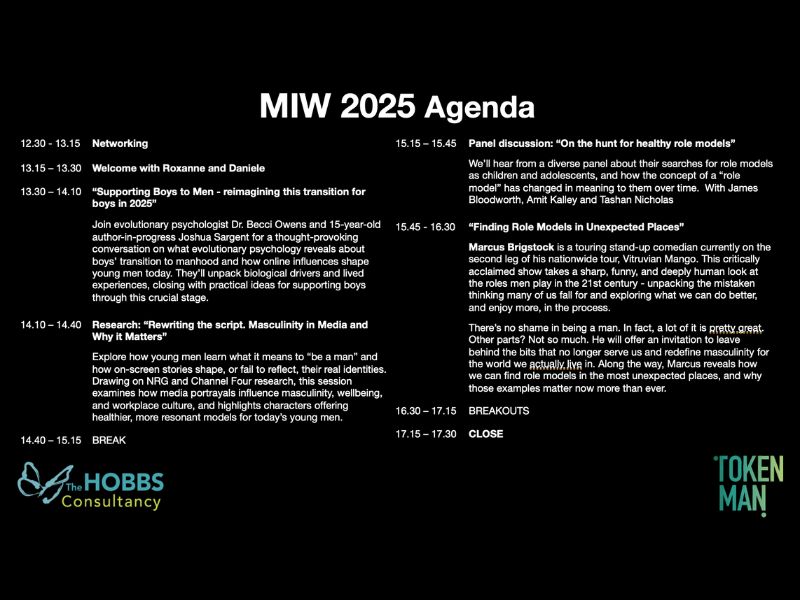
The RAF, however, has been leading remote teams for a long time. Senior leaders do so from headquarters well behind the action (for the RAF often deep in enemy territory). Squadron Commanders must lead their people whether they are in the same aircraft, another one or not even with the flight.
Sir Keith Park, the Air Officer Commanding 11 Group who won the Battle of Britain, led all his fighter squadrons from a bunker in near Uxbridge. As a squadron commander, I was not always even on the detachment of my squadron that was on operations. I also remember one sortie over Iraq when I was giving a lead to a whole international package of aircraft having to rely on a callsign I had never heard of before for a service whose normal provider I knew had turned back unserviceable. But I knew of them and trusted them.
We are in the anniversary period of the Battle of Britain so it is topical. The Battle was fought using the world’s first networked air defence system. The network was based on telephone lines. A picture of the Battle was compiled in near real time at Fighter Command HQ from the radar returns and the Observer Corps.
The part of the picture pertinent to each Group HQ was relayed to them – for Park this was at Uxbridge in Middlesex and the squadrons he led were based from North Kent through Sussex, Surrey and Hampshire. The pilots fought against what felt like overwhelming odds for four months never backing away from the fight because of their leadership. One pilot wrote to his mother telling her that none of them would refuse the fight even if they were the last pilot left.
Park got to know his squadron commanders well. He set them a framework within which to work based upon the strategy set by Dowding at Fighter Command. And he drove his squadrons hard. The framework was loose enough for the squadrons to apply their own tactics. Park gathered his subordinate commanders together regularly so that tactics that worked better could be passed onto other squadrons. Problems could be discussed and ameliorated.
Park also visited at least one of his airfields flying there every day in the evening when it was less dangerous, in his personal Hurricane, OK1. He became a recognisable figure supporting his people. He was constantly concerned with his pilots, for example always trying to improve their diet, and they knew it.
One pilot landed having forgotten to put his undercarriage down. Park called him to his office and tore a strip off him for damaging a precious aircraft unnecessarily. He then took him to the bar and bought him a beer. That pilot was back fighting the following day with renewed vigour.
In 2003 Gulf War, Sir Glenn Torpy, the commander of all RAF aircraft in the War acted in a similar manner. He ensured he knew his people well and they him. They trusted him.
In my case, I too ensured that I knew my squadron personnel, the aircrew and the groundcrew. And they knew me. Knew that I was concerned for them, that I would put myself out for them, so that they would follow my intent even if I was not there. On one sortie, one of my aircraft lost an engine over Iraq and limped to an airstrip in Saudi right on the border. It was unmanned, with no fence and only a fire truck with skeleton fire crew. It took us three days to reach the crew and recover the aircraft amid rumour that the Iraqis were looking to capture them. The next day I asked for volunteers for the next sortie over Iraq. Despite the fears of all that the engines were being asked too much of and that another might fail all my people volunteered. They trusted me.
Everyone in the RAF is trained and educated to lead. In the Battle of Britain ‘every man was to use their own best judgement’. Leaders provided the strategy (not a detailed plan), they got to know their people well. What they were capable of and what they were not. Followers knew their leaders, trust was built. Missions were assigned. Subordinate leaders had the flexibility to find a way to achieve them. And did so.
Everyone must be prepared to lead. Must know each other well. Trust each other. Senior leaders have to ensure that circumstances are well understood, they must engender a determination to get things done. They must make strategy and intent clear and leave room for others to find a way to get things done. Prior preparation is vital.
Dr John Jupp OBE is a former fighter pilot, Squadron Commander and founder of the RAF Leadership Centre. His new book Rise Above – Leadership lessons from the RAF is published by Pearson, £14.99.


November
19nov10:0013:00MenoMinds – Free Training for Women in Business | Menospace & Minds That Work
19/11/2025 10:00 - 13:00(GMT+00:00)
Introducing MenoMinds – Free Training for Women in Business We’re excited to share MenoMinds, a fully funded programme created by Menospace and
We’re excited to share MenoMinds, a fully funded programme created by Menospace and Minds That Work, supporting women in business, freelancing, or entrepreneurship through the emotional and mental challenges of menopause.
Wednesday 19th November | 10:00am – 1:00pm (UK)
Live on Zoom | 💷 Free (funded by NEBOSH’s Social Purpose Programme)
Menopause can affect confidence, focus and wellbeing — MenoMinds helps you take back control with practical tools and a supportive community.
You’ll explore the CARE Framework:
Includes a digital workbook and invitation to monthly community groups on sleep, nutrition and stress management.
Freelancers, entrepreneurs, and women in small or micro-businesses (under 50 employees).
Facilitators: Haley White (Menospace) and Victoria Brookbank (Minds That Work)
19nov12:3018:00Masculinity in the Workplace - 2025 (Hybrid)
19/11/2025 12:30 - 18:00(GMT+00:00)
Conway Hall
25 Red Lion Square, London, WC1R 4RL
Brought to you by Token Man and The Hobbs Consultancy. Welcome to Masculinity in the Workplace, designed specifically to

Welcome to Masculinity in the Workplace, designed specifically to engage men with creating inclusive cultures. Marking International Men’s Day, the objective of our event is to give men both the reason and the skills to lean into the conversation, while also providing women and non-binary people with the confidence to engage more men in culture change. Because ultimately we can only make real change by working together.
Date: Weds Nov 19 2025
Time: 12.30pm to 6pm
Location: Conway Hall, 25 Red Lion Square, London, WC1R 4RL
Our speakers will share their insights and experiences, shedding light on the evolving dynamics of masculinity, leadership and culturein diverse work environments. You’ll have the chance to ask questions, participate in interactive sessions, and network with like-minded professionals.
The theme for this year is ‘Supporting Boys to Men to Role Models’. This year’s event will seek to understand the concerns and barriers that are in the way for boys and men, particularly looking at key inflection points in their lives. It will equip parents, leaders, friends and persons of significance in the lives of young men with the tools for self-reflection, effective role modelling and courageous conversations..
It will suggest that status-seeking and risk-taking behaviours are innate as boys become men, look at how this shows up for boys in 2025 and question what support could help these boys have a more positive initiation in to adulthood so that they are ready for the workplace. We know that there is a reverse gender pay gap and that schools aren’t preparing students in the same way to enter the professional workplace – what needs to be done?
We will look at the behaviours that are role modelled by men once they are in the workplace. Is it healthy for us to look for male role models, or is a search for positive behaviours more effective? What can we learn from how men are represented on screen and in the media? And what can we do to support our men once they are in the workplace?
This site is for the in-person experience. Otherwise you can register for the online version here.
FYI – lunch will not be provided

This event is for anyone passionate about creating more inclusive, equitable, diverse and human workplaces, and we welcome attendees of all identities and expressions.
Historically, our audience has included around 60% men and 40% women or non-binary people, with a wide range of roles and lived experiences.
This year, we’re especially keen to welcome CEOs, HRDs, CMOs, Inclusion & Diversity leaders, People & Culture teams, and anyone working to engage men more effectively in their organisations. Whether you’re a parent, people manager, or someone invested in systemic culture change, this event is for you.
By attending, you’ll be joining a growing community of people committed to reshaping masculinity, unlocking allyship, and building workplace cultures where everyone can thrive – from boys and young men to senior leaders and everyone in between.
Receive a 50% discount on an in person and virtual ticket below.
20novAll DayDigital Transformation Conference
20/11/2025 All Day(GMT+00:00)
Mercure London Earls Court
London
Ready to transform your business in the digital age? The upcoming Digital Transformation Conference UK promises an exceptional opportunity for leaders who want to accelerate change, embrace innovation and shape
Explore how industry leaders are redefining digital and business transformation. Learn proven strategies, gain fresh perspectives, and connect with peers shaping the future of technology and enterprise. Tactical & practical content to drive your transformation efforts.
Throughout the day, delegates can look forward to a diverse programme of content exploring every aspect of digital transformation, business change, and innovation. Hear best practices, lessons learned, and insights into real-world challenges from leaders driving progress across digital, technology and IT.
If you’re a C-suite leader, head of innovation, transformation or IT, this is the place to be. Whether you’re just starting your journey or looking to scale up, you’ll leave with fresh ideas, new contacts and a renewed sense of direction.
